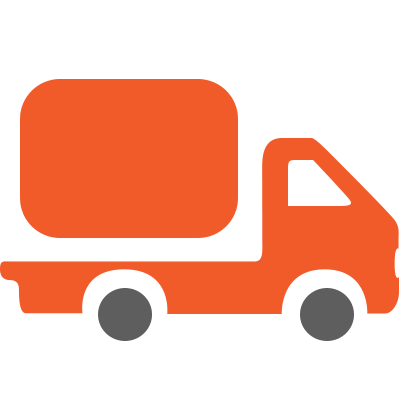Caring for your new Puppy
By: Pet City On: 27 April 2020
The way you approach daily routines and problems with your puppy can influence how your puppy will react to situations later in life. Ensure that you have a plan going in and can logically and efficiently manage anything that arises. The following is an overview of the topics that you will need to consider. Our staff are always happy to help should you need any further advice or information.
What Vaccinations and Medications do Puppies Need?
Vaccinations - a course of three vaccinations is required to fully protect your puppy against Canine Parvovirus, Distempter, Hepatitis and Kennel Cough. These are due between 6-8 weeks, 10-12 weeks and 14-16 weeks of age. Until your puppy has finished its' course you should not venture outside walking on streets or go to dog parks and should certainly not come into contact with dogs whose vaccination history is unkown. Annual injections are then recommended by your vet.
Intestinal Worms - Worming is essential to protect your pup from nasty parasites. Ensure you keep track of your puppies' weight as they grow so you can medicate accordingly. The correct course of worming needs to be given every 2 weeks until 12 weeks of age, monthly until 6 months, and then every 3 months after that.
Heartworm - Heartworm is completely separate to intestinal worms as the infection is via mosquitoes not the environment. Ensure your puppy has started its course of heartworm prevention around or before 12 weeks of age. There are many treatments available, including monthly tablets or annual injection.
Fleas - Fleas are one of the most common complaints with puppies. This is because they affect both our puppy and us! To help there are a number of easy-to-administer products available. If fleas become a problem at home you will generally see adult fleas or find flea dirt (small black flecks).
View our full range of Flea and Worming products here.
Desexing - We recommend that every pet dog is desexed. The age of desexing your pet is wildly debated and we generally suggest you discuss with your breeder/adoption center and vet about the best time to do so.
How to Enrich your Puppy & Socialisation Tips
A bored or under-enriched puppy can become frustrated and start displaying unwanted behaviours. It is your duty to relieve boredom by providing a large range of fun toys, mental and physical exercise, as well as positive socialisation.
Socialisation - Your puppy needs to learn how to interact in everyday experiences, including visiting new places, dogs and people. We recommend using your puppies' critical learning period (between 6-16 weeks of age) to explore new places, meet other dogs and expose your puppy to new things. The beach, cafes, outdoors events are all great places to go. If your dog is experiencing anxiety with new things, its vital that you receive help from a professional to ensure this behaviour is alleviated ASAP. Leaving socialisation too late or exposing them when anxious can have detrimental affects on their ability to cope in the human world.
Toys - If you rotate your puppies toys regularly and provide a range of teething, squeaky and rope toys, your puppy will always have something different to play with. The most important type of toy for your dog are the ones that provide extra enrichment, ie food and treat dispensing toys. Problem solving is extremely beneficial to your pup's development and will also help alleviate boredom & provide mental exercise.
Treats - As well as toys, a variation of treats is important. Long lasting chews are fantastic at providing your pup with mental stimulation. Treats like roo tendons, sheep ears and chicken jerky strips provide a little challenge and a tasty reward.
View our extensive range of toys and treats online, or chat to our friendly staff about what will suit your puppy.
Basic Training Advice for Puppies
The first night can be a very scary experience for your puppy, often puppies will experience extreme anxiety from being separated from their littermates and mother and the environment they grew up in. Being prepared for this is essential to make things as easy as possible for your pet. Set up your puppy's sleeping area as a safe and quiet space, usually in a bedroom inside a crate where they can be comforted by the closeness of their new family. Using calming music, pheromone collars/sprays and providing lots of comfort in the form of pats and blankets will help immensly.
Toilet Training - This can prove to be quite a daunting experience if not approached sensibly. Remember your puppy does not have the bladder strength or size to hold on for long periods of time. Therefore you will need to continually take them to an area they are allowed to relieve themselves and encourage and praise them when the wanted behaviour is achieved. Do not allow free access to your house as they will not know yet where they are and are not allowed to go. Your puppy will need to relieve themselves usually 15-30 minutes after a meal so ensure they are restricted to the yard or designated toilet area, free from distraction until the result is achieved. Play pens and crates are fantastic tools in toilet training, when used correctly they help to achieve successful toilet training results.
General Training - Training your small canine is best approached using positive reinforcement. Ie, when puppy does well, offer a reward. If your dog does something you don't like, ignore him/her. Using that approach will help you in the beginning stages of puppyhood. However, other training process like recall, teething/biting, loose-lead walking, anxiety relief are a little more complex and we recommend receiving advice from our dog trainer, Zigrid.
Puppy Preschool - Between 8 and 16 weeks of age is the most critical socialisation and learning period for your puppy. That is why at Pet City we strongly recommend you enrol in a Puppy Preschool class that endorses socialisation as well as training and allows all family members to attend. You will have a happy, well adjusted dog for life if you train and socialise them correctly from the start.
How to Feed your Puppy & Diet
Feeding might seem reasonably simple but we consider it to be one of the most important things when raising a dog (right behind socialisation).
How you approach your dog's feeding routine depends on if you choose to crate train, how many pets you have, and other factors like what you choose to feed your dog. What type of bowl and feeding devices you use can also greatly impact their mental enrichment, and can be the line between a satisfied and bored dog.
Feeding Toys - we recommend ditching the boring 'bowl' and introduce feeding toys into your pets routine. Chasing a ball around that drops food or licking some wet food out of a KONG toys is one of the best ways to physically and mentally exercise your pooch. A tired dog is a happy one!
Feeding Bowls - slow feeders are bowls or plates that offer ridges or walls inside it to aid in slowing down your dog's eating. These bowls are fantastic for all dogs, whether you have a 'hoover' or your dog likes to takes his/her time. Slowing down feeding helps with digestion, and navigating around the grooves makes eating a challenge and provides your pet with added enrichment.
Diet - Feeding a balanced, high quality food is essential for your growing puppy. It is always best to continue the previously fed diet during the initial transition and relocation to reduce the chance of an upset stomach and stress. Remember when feeding any diet that the feeding guide is just that, a 'guide'. The amount you feed is dependent on the breed, activity level, age and metabolism. Monitor your puppy's weight and body condition and consult your vet if needed. Remember that as your puppy grows, the amount of food your dog will eat will fluctuate greatly.
Want more information? Don't hesitate to give our Pet City staff a call during office hours, or drop them an email - info@petcity.com.au









